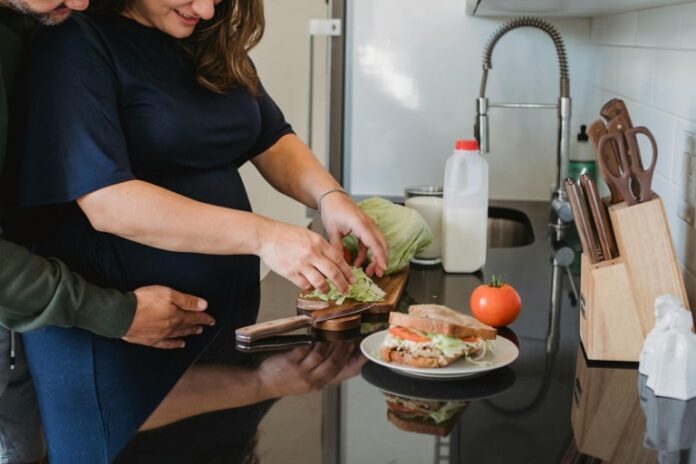Pregnancy comes with incredible joys,but also new risks. One of the most overlooked dangers is foodborne illness. Since your immune system is more vulnerable, infections that might be mild otherwise can become serious. To help protect you and your baby, here are eight essential tips to avoid getting sick from contaminated food.
Wash Everything, Not Just Your Hands
You already know to wash your hands before preparing food, but don’t stop there. Always rinse fruits and vegetables thoroughly, even if they’re prewashed. Harmful bacteria like E.coli and Listeria can hide in crevices and icing to the surface. Use clean running water and a soft brush for extra safety.
Skip Raw and Undercooked Foods
When you’re pregnant, you’re more susceptible to bacterial and parasitic infections. Raw or undercooked meat, poultry, seafood, and eggs are high-risk foods that could carry Salmonella or Toxoplasma. To reduce your risk of a maternal infection, make sure all meat is fully cooked, and avoid foods like sushi, runny eggs, and rare steaks.
Be Picky About Dairy and Deli Meats
Soft cheeses made from unpasteurized milk, like brie, feta, and blue cheese, can contain Listeria, which is especially dangerous during pregnancy. Deli meats and cold cuts can also pose a risk unless they’re reheated until steaming hot. Play it safe by checking that all dairy products are clearly pasteurized.
Prevent Cross-Contamination
Cross-contamination is a common way harmful bacteria spreads in your kitchen. Always use separate cutting boards and knives for raw meat and fresh produce. After each use, clean all surfaces thoroughly with hot, soapy water, or better yet, sanitize them to kill any lingering bacteria.
Monitor Food Labels and Storage Times
Keep an eye on expiration dates and food storage guidelines. Don’t eat food that smells strange, looks discolored, or has been in the fridge for too long. Leftovers should be refrigerated within two hours and eaten within three to four days. Also, check that items like juices and cheeses are pasteurized.
Maintain Safe Food Temperatures
Bacteria multiply quickly between 40°F and 140°F. To stay safe, keep your refrigerator at or below 40°F (4°C) and your freezer at 0°F (-18°C). When reheating leftovers, make sure they’re steaming hot, especially soups, casseroles, and meat dishes. Invest in a food thermometer to be absolutely sure.
Choose Restaurants Wisely
Eating out doesn’t have to stop during pregnancy, but be selective about where you go. Choose restaurants known for cleanliness and food safety. Avoid buffets, salad bars, and anything that’s been sitting out. Don’t be afraid to ask how your food is prepared and request that meats and eggs be well done.
Be smart with Leftovers and Meal Prep
Meal prepping can save you time, but it also comes with risks if not done safely. Make sure cooked foods are cooled quickly and stored in airtight containers. Label them with the date and eat them within a few days. Reheat leftovers to at least 165°F (74°C) to kill any potential bacteria.
Leftover rice, pasta, and even vegetables can harbor bacteria like Bacillus cereus if left at room temperature too long, something many people don’t realize. Being careful here can help you avoid a potentially serious maternal infection.
Endnote
Preventing foodborne illness during pregnancy isn’t about being paranoid, it’s about being prepared. Taking small steps in how you cook, shop, and eat can significantly reduce your risk of a maternal infection, which can have serious consequences for both you and your baby.




